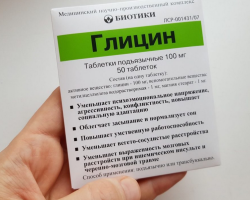Caffeine is a useful substance for human health, but you need to use it in moderation. It affects almost all the systems and organs of the body.
Content
- How does caffeine work: what does it affect?
- How caffeine affects the body, health, body, mind of an adult: men, women
- How many caffeine does a person use every day?
- Sources of caffeine in food
- How does caffeine affect the heart, blood vessels, blood: why doesn't caffeine affect blood pressure?
- How does caffeine affect the brain and nervous system?
- How does caffeine affect the skin, hair?
- How does caffeine affect the liver?
- Caffeine affects sleep: why?
- How does caffeine affect potency?
- How does caffeine affect conception and pregnancy?
- How does milk affect caffeine?
- How does caffeine affect the taste of tea?
- Video: The whole truth about coffee. How does caffeine affect the human body?
- Video: TOP-8 facts about coffee. Benefits and harm
- Video: How does caffeine affect our health?
Once, Vladimir Spivakova, known to the Russian conductor, offered a cup of coffee during an interview with one television channel. After the conversation, he conducted an exhausting rehearsal with the orchestra, and jokingly said: "Drugs help." So what does drug addicts have in common with those who cannot just start a day without morning coffee? Both are characterized by dependence on the psychoactive substance.
On the site iherb You will only find useful coffee - certified and unique, fragrant bouquet. These are natural organic compositions that are suitable for breakfast and as tonic drinks.
Scientists believe that regular use of caffeine causes physical dependence. If consumers of caffeine do not accept their usual dose, they become lazy, irritable and suffer from headaches. This is called withdrawal syndrome or crisis. Professor of etiology and neurobiology Roland Griffiths from the medical school of Jones Hopkins in Baltimore, says that only 100 mg of caffeine per day, equal to a cup of coffee, cause cancellation syndrome when stopping it. From this article you will learn how caffeine affects the body, mind and health. Read further.
How does caffeine work: what does it affect?

The natural rhythm of wakefulness and sleep of man once depended on the sun and time of the year. With the industrial revolution, work from fields and workshops was transferred to factories and mines. Workers had to adapt to a new rhythm. Coffee and tea were already at hand at that time. How does caffeine work and what does it affect?
- The main effect of caffeine is the binding of adenosine receptors on neurons.
- Adenosine is a natural signal molecule that promotes good sleep.
- Unlike natural adenosine, caffeine occupies only a place of binding and does not allow this substance to fulfill its intellectual function.
- Neurons, thus, misinform the pituitary gland, which is the highest gland with internal secretion, since it regulates the functioning of other glands. The pituitary gland interprets the information as if we were not tired. This is similar to gluing a black sticker on the signaling lamp overheating of the engine.
In very high concentrations, caffeine is associated with other targets. Caffeine in cells increases the concentration of cyclic AMF, which is an ordinary intracellular signal molecule. Thanks to this mechanism, caffeine increases the secretion of acid in the stomach. It can also affect calcium ion channels and, thus, increase the concentration of calcium in cells. Calcium ions are also important for transmitting signals in cells.
It is worth knowing:
- Caffeine affects mood and improves attention.
- Hungarian mathematician Paul Erdos once said that a mathematician is a machine that makes coffee theorems.
- However, this is the desirable property of caffeine to outwit a natural circadian rhythm, also has a dubious side. Namely, that we are deceiving a natural circadian rhythm and rest too little and sleep too little.
- This has consequences for our health and well -being.
Thus, dependent on caffeine rotate in a closed circle. They need caffeine to overcome fatigue, but they are tired because they did not relax enough and slept. Of course, thanks to caffeine, it will not be possible to sit all day in the “waiting mode” or drive a car for a day long in. What share of the so -called managerial disease and stress can be attributed to caffeine consumption? There is no real answer to this question yet. Scientific research also revealed some positive effects of regular coffee use. Fans of coffee are less likely to suffer from diabetes, Parkinson's disease, bile stones and some other diseases.
How caffeine affects the body, health, body, mind of an adult: men, women

The concentration of caffeine in the blood is the highest after 15-120 minutes After admission. Its hydrophobic properties allow a substance to pass through all biological membranes, including a hematoencephalic barrier. How does caffeine affect the body, health, body, mind of an adult - men, women? Read more:
- For example, the concentration of caffeine in the blood of a newborn is equal to the concentration of caffeine in the blood of the mother, since it also occasionally passes through the placenta. In addition, due to the lower activity of the quotochrome of the P450, the concentration is halved only after 80 hours.
- Caffeine concentration in adults is halved after 3-4 hours After eating coffee.
- For smokers, half -life is halved.
- Caffeine, which remains in the body for less time, also has a lower effect. To compensate for this reduction, smokers consume more caffeine.
- On the contrary, the period of half -life doubles in women taking contraceptives.
- Half -life in women in the last trimester of pregnancy in 4 times more. This is probably why some pregnant women unknowingly reduce caffeine consumption.
If we drink the last cup of coffee late in the afternoon or evening, our dream will be less deep. In the morning we are sleepy and need a cup of coffee. If you break this vicious circle, drowsiness, headaches and fatigue awaits us. This withdrawal syndrome makes it possible to eliminate caffeine.
How many caffeine does a person use every day?

A cup of coffee contains about 100 mg of caffeine, tea is half as much, and cocoa - only 10 mg. The cola bank contains 40 mg of caffeine, and in the bank of the "energy" drink as much as in a cup of coffee. Chocolate contains little caffeine, but a whole tile of dark chocolate may contain as many caffeine as a cup of coffee. How many caffeine does a person use every day?
Scientific literature provides interesting data on the amount of caffeine consumed by countries:
- Many people think in Italy They use a lot of caffeine, but this is not so. Residents of this country consume 210 mg per person per day.
- The amount is the same as in Great Britain and Franceand much less than in Germany (313 mg).
- However, in Italy Almost all caffeine is consumed with coffee, while in Great Britain half is consumed with tea.
- World record holders for coffee consumption are in the Scandinavian countrieswhere they drink up to 400 mg caffeine per day.
- Only the Swedes drink more than 3 tons Pure caffeine every day!
- The geographical location, of course, contributes to this, and the fact that in Scandinavia the duration of the day greatly depends on the time of year.
These data prove that caffeine is the most widely used psychoactive substance in the world.
Sources of caffeine in food
One of the first slogans Coca-Cola on the edge 19th century was: "Against headache and exhaustion, drink Coca-Cola".
Caffeine is an alkaloid from a group of methylxantins, which also includes theophylline and theobromine. Methylksanthins are contained in coffee, real tea, nuts of cola, cocoa, tea, guarana. It was assumed that in tea there was another methylxantin, which they called Tein. Later it turned out that caffeine. But tea also contains theobromine and theophylline. The rest is less effective than caffeine. Theophylline c 3-5 times More effective caffeine, but it is not enough in tea.
Caffeine is artificially added to some drinks. Initially, a nut extract was used in the river. This definitely contributed to the popularity of this drink.
How does caffeine affect the heart, blood vessels, blood: why doesn't caffeine affect blood pressure?

Many studies have been published on the influence and mechanisms of caffeine. In one scientific monograph about this substance, the author says in his chapter that it is a suitable stimulant, because it is legal and there is no need to abuse it. Another author, on the contrary, describes that caffeine has great potential for abuse, and that more research is currently being conducted precisely on this substance than, for example, marijuana and amphetamines.
Scientists are also sure that the terms “drug addiction” and “coffee machine” are not synonyms, but are interconnected. How does caffeine affect the heart, blood vessels?
- It is worth noting that this substance, influencing directly to the myocard, accelerates the functioning of the heart, makes its reductions and nonsitable.
- The volume of pumped blood increases, which reduces central venous pressure.
Why doesn't caffeine affect blood pressure?
In large doses, caffeine increases blood pressure in patients with hypertension. Moreover, these parameters do not change in people with normal indicators. If the pressure is low, then caffeine will increase it, especially if many cups of coffee are drunk. Therefore, it can be said with confidence that caffeine will not affect normal pressure. If in the patient it is increased or lowered, then this substance will increase these indicators.
How does caffeine affect the brain and nervous system?
Some studies show that caffeine acts as a weak antidepressant. This is also confirmed by the fact that some patients use drugs with this substance to self -medicine of some mental illness. Another study suggests that the high level of caffeine in the blood can have side effects in combination with other drugs.
Caffeine stimulates the central nervous system, affects the nerve cells in the brain, adds vigor and reduces the feeling of fatigue. This is largely achieved by blocking adenosine receptors. How it works? How does caffeine affect the brain and nervous system?
- Adenosine is part of DNA, RNA, adenosine-3-phosphoric acid (ATP), and also plays an important role in biochemical processes, in particular, in energy transmission.
- Adenosine is a marker of fatigue. It gives signals when there is not enough energy in the cells, about staying in stress, warns that the body needs rest, that it is tired and it is time for a person to sleep.
- This substance accumulates during the day. With fatigue and the appearance of adenosine, the heart muscle begins to work weaker. A person feels fatigue.
But if you block adenosine receptors, then you can temporarily remove a subjective feeling of fatigue. Therefore, many people drink coffee. In addition, as mentioned above, caffeine is addictive. And if you are tired, you cannot cheer up anything else, except for a cup of coffee.
How does caffeine affect the skin, hair?

It is worth noting that caffeine affects not only the surface of the skin, but also the processes that occur under it. Scientists have long established that the use of several cups of coffee reduces the risk of developing skin cancer in a person. Those who drank coffee for 2 cups of a day are 20% less suffering from malignant education than those people who avoided this drink. The thing is that caffeine is an excellent antioxidant who successfully fights free radicals.
Caffeine has the same positive effect on the hair. This substance stimulates hair follicles. Therefore, curls begin to grow well. In addition, caffeine perfectly removes dead cells on the scalp, and blood flow improves and the production of sebaceous glands decreases. Bulbs receive more nutrients, which leads to active growth.
How does caffeine affect the liver?
- Prevention of liver cancer is performed
- Digestion improves
- The outflow of bile is performed
- The body is cleansed
- Lipid and carbohydrate metabolism is performed
But in this case, coffee can be harmful if it contains toxins in a dry form, and if a person is too abused by drink. Otherwise, for the liver only benefits.
Caffeine affects sleep: why?

The text said above that if you constantly drink coffee, then yours will become less deep over time. This is due to the fact that caffeine excites the nervous system, adds vigor and a person does not feel fatigue.
The substance adenosine is a marker of fatigue, blocked by caffeine. The body should rest, but he does not want. More often this happens when addictive. If you just have a cup of coffee alone or a couple of times in your life, then this will not happen.
How does caffeine affect potency?
Caffeine affects potency in men. When using it in a small amount, an erection improves, the duration of sexual intercourse increases. If you abuse, the effect will be the opposite: libido, sexual attraction will decrease, there will be early ejaculation.
It is worth remembering: The combination of coffee and alcohol leads to early impotence in men. If a person will drink coffee and alcohol-containing drinks in large quantities, he will lose male strength under the age of 50 years.
In order for caffeine to have a positive effect on the body of a man, it is necessary to adhere to some rules:
- When buying, give preference to grain product. Cook coffee yourself, grinding with a special grater or machine.
- The packaging with grains indicates the date of production and the shelf life. Pay attention to these numbers. They must be relevant.
- Do not buy and do not use stuck grains.
- Do not use coffee drink in the morning on an empty stomach. This leads to irritation of the gastric mucosa.
To improve potency, it is enough to drink 1-2 cups of coffee per day, no more. Make it not too strong and do not add sah. Sand so that the drink completely reveals its taste. Do not drink coffee before bedtime so that the nightmares did not dream, and in the morning there was no feeling of fatigue.
How does caffeine affect conception and pregnancy?

Scientists from the famous UCLA University in Los Angeles and HPital Robert-Debr clinics in Paris describe that 2 cups of coffee per day in the last trimester of pregnancy can cause a deterioration in the blood supply to the placenta. This can affect the development of the fetal brain. Therefore, it is better for pregnant women to abandon coffee at all. There is also caffeine in tea, so it is better to give preference to natural juices, compotes, herbal and fruit-berry tea.
A study conducted at the Medical School of Nevada University on Mice showed that caffeine interferes with the muscle contractions of the phallopium pipes. They are responsible for moving the egg from the ovary to the uterus, and it is there that fertilization takes place. Therefore, if the contractions of the smooth muscles are reduced, the egg does not always fall into the necessary area for fertilization at the right time. But it is worth noting that such studies were not conducted on women who cannot become pregnant. Scientists simply conducted a survey, which of the women who cannot conceive the baby used coffee, and who did not. Polls were also conducted in women who cannot get pregnant for a long time, what their diet they have, whether they love coffee.
All the data that is at the moment is that women who were already pregnant drank coffee had a miscarriage. The same thing happened if the man drank a lot of coffee a day before conception.
How does milk affect caffeine?
Milk changes the taste of coffee and reduces the amount of caffeine in the drink. Due to this neutralization, coffee can be drunk in large quantities. However, sah. It is better not to add sand so as not to spoil the taste.
How does caffeine affect the taste of tea?

Caffeine has a very strong taste of tea. Many people, in order to get rid of this substance in such a drink, wash it off, brewing and draining water. However, the taste of tea is also lost with this. Thus, caffeine makes tea tasty and fragrant.
The American physiologist Tatsuo Nakamoto completes his chapter in the scientific monograph by an alarming resume: “Unfortunately, many people consider caffeine a relatively safe active ingredient.” Another American author in a scientific article claims that caffeine consumption is safe and does not cause addiction. He says that symptoms such as headaches that occur after the cessation of caffeine use are eliminated by the corresponding dose of the same substance.
All scientists write differently, if you listen to the opinion of all of them, then you cannot decide for yourself-coffee is useful or harmful. Only one thing should be remembered, if you like coffee, then drink it in small quantities, but refuse during pregnancy and before conception. So it will bring only benefit and pleasure.
Video: The whole truth about coffee. How does caffeine affect the human body?
Video: TOP-8 facts about coffee. Benefits and harm
Video: How does caffeine affect our health?
Read on the topic:







